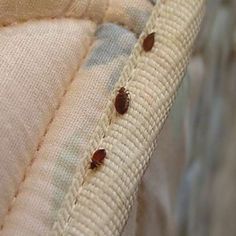Efficient Bug Control Measures to Secure Your Garden and Plants
In the realm of gardening, the consistency of a well-tended yard can often be disrupted by unwanted insects that threaten the health and vigor of plants. Carrying out efficient parasite control measures not only safeguards the yard's visual charm but likewise plays an essential duty in protecting the plants' wellness.
All-natural Pest Repellents

One more effective natural pest repellent is diatomaceous planet, a fine-grained substance made from fossilized aquatic organisms. Diatomaceous planet works by literally harming insects with its unpleasant texture, making it an outstanding choice for managing bugs like slugs, beetles, and caterpillars. In addition, planting friend plants like marigolds, lavender, or basil can aid push back insects due to their strong fragrances or natural chemical compounds.
Beneficial Pest for Pest Control

Another helpful insect is the parasitic wasp, which lays its eggs inside insect bugs, ultimately eliminating them. Ground beetles are superb for controlling caterpillars, snails, and slugs. Hoverflies, usually mistaken for due to their comparable appearance, feed upon aphids, thrips, and caterpillars.
To attract valuable pests to your garden, you can plant a varied array of flowering plants, such as dill, fennel, and yarrow, which provide nectar and pollen for grown-up pests. In addition, prevent using broad-spectrum chemicals that can damage both unsafe and valuable pests. By developing a welcoming atmosphere for these valuable insects, you can reduce the demand for chemical pesticides and promote a healthier, a lot more balanced yard community.
Buddy Planting Methods
When aiming to boost the efficiency of valuable pests in your yard for all-natural pest control, taking into consideration companion growing strategies can even more maximize the environment balance. Buddy growing involves strategically discover this positioning specific plants beside each various other to optimize their common benefits, such as preventing bugs, drawing in advantageous bugs, or improving nutrition uptake - bed bug exterminator houston near me. One popular example is planting marigolds along with tomatoes to drive away nematodes and various other hazardous insects while likewise bring in pollinators
Growing trap crops like nasturtiums can draw away insects away from your primary crops, offering as sacrificial plants that safeguard your valuable produce. By applying friend growing techniques, you can develop a diverse and harmonious garden ecological community that naturally regulates parasites while promoting plant health and wellness and performance.
DIY Pest Control Solutions
To properly manage parasites in your garden, implementing do-it-yourself parasite control remedies can be a cost-effective and environmentally friendly technique - bed bug exterminator houston near me. Setting up physical obstacles like row covers or netting can additionally prevent insects like caterpillars from harming this content your plants.
Another effective technique is using diatomaceous earth, an all-natural powder that can be sprinkled around plants to prevent slugs, snails, and various other crawling pests. Moreover, buddy growing particular natural herbs and flowers like marigolds, basil, and lavender can assist repel parasites and attract beneficial bugs. Consistently checking your plants for signs of parasite damages and promptly eliminating any impacted areas can additionally prevent invasions from dispersing. By including these do it yourself insect control services right into your gardening routine, you can safeguard your yard and plants without depending on extreme chemicals.
Environmentally-Friendly Pesticides

One more reliable alternative is diatomaceous planet, learn the facts here now an all-natural compound made from fossilized aquatic microorganisms, which can be sprinkled around plants to control slugs, snails, and various other creeping pests. Additionally, insecticidal soaps and oils stemmed from plant-based resources work for controlling soft-bodied bugs like aphids, termites, and whiteflies.
Conclusion
Finally, effective parasite control procedures such as natural repellents, useful insects, friend growing approaches, do it yourself options, and environmentally-friendly chemicals are important for safeguarding your garden and plants. By carrying out these approaches, you can stop damage triggered by insects and keep a healthy and growing garden community. It is essential to think about the long-lasting effect of utilizing pesticides and go with more sustainable and environment-friendly choices to guarantee the wellness and wellness of your plants and the atmosphere.